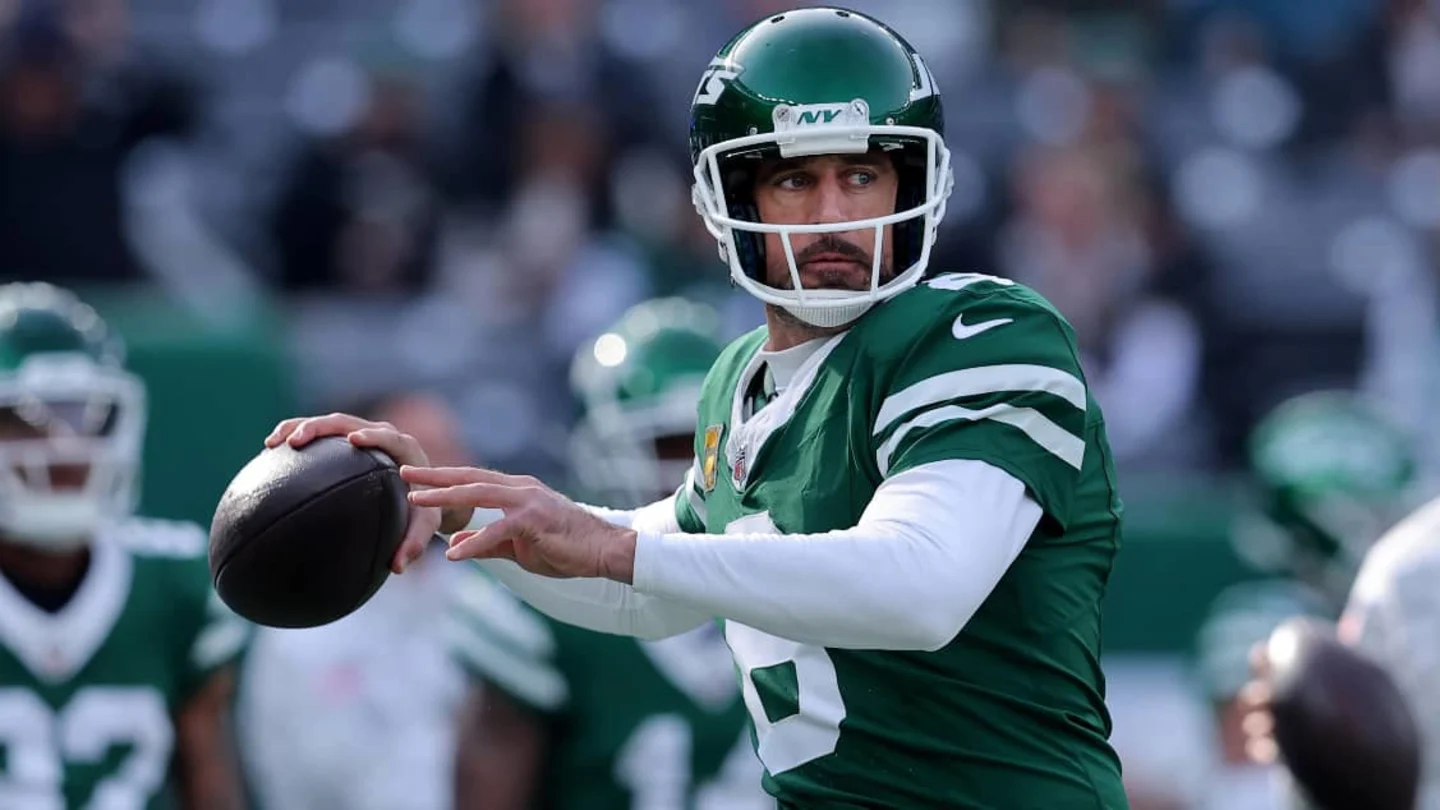Aaron Rodgers joined the New York Jets with high hopes, admitting on his first day that he dreamed of bringing a championship to New York. Reflecting on the Jets’ lone Super Bowl win from the 1968 season, Rodgers described the franchise’s solitary Lombardi Trophy as “a little lonely,” signaling his ambition to deliver a second title. As a four-time NFL MVP and Super Bowl champion with the Green Bay Packers, Rodgers brought a sense of optimism to a team desperate to break its championship drought.
Despite Rodgers’ lofty goals, achieving them has proven difficult. In 2023, a devastating torn Achilles during the first game of the season sidelined him after just four snaps. Although he returned later in the year, the Jets’ playoff hopes were dashed when they were eliminated from contention following a 32-26 overtime loss to the Miami Dolphins. This defeat ensured that the Jets would miss the playoffs for the 14th consecutive season, extending the longest active postseason drought in the NFL.

The Jets’ 14-year absence from the playoffs highlights the ongoing struggles of the franchise. Their last postseason appearance came in 2010 when they reached the AFC Championship Game, but since then, they have failed to break through. The loss to the Dolphins further underscored the team’s inability to secure a playoff berth, despite the addition of a star quarterback like Rodgers.
The Jets are not alone in enduring prolonged playoff droughts. Other major sports teams in the U.S. also face similar struggles. The Buffalo Sabres in the NHL have gone 13 seasons without making the playoffs, the Los Angeles Angels in MLB have missed out for 10 years, and the Charlotte Hornets in the NBA have not appeared in the postseason for eight years. These teams, like the Jets, continue to search for success while grappling with extended postseason dry spells.
